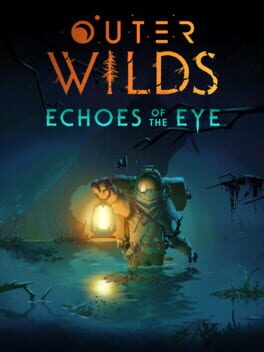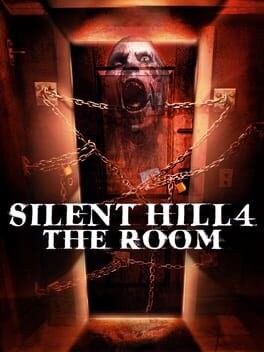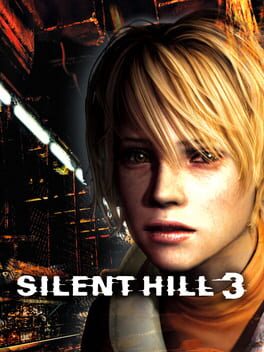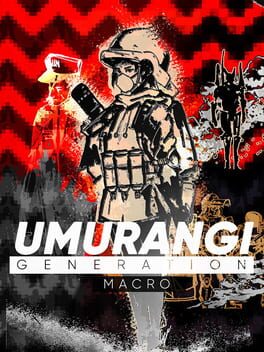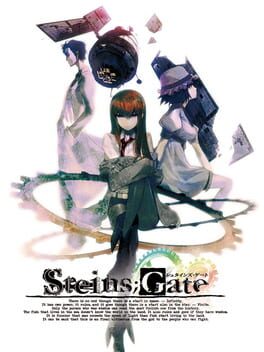s_bishop
11 reviews liked by s_bishop
Persona Ain Soph
2008
I could see what they were going for here, the stranger was very nice but once you get past it everything just feels like a chore and is very hard to figure out. I barely had a fun time playing the latter half of the dlc and it felt like i was just following a guide because it was so hard to figure out not to forget the time limit too. I wouldn’t say it’s the worst though, compared to the base game it doesn’t hold a candle at all.
No More Heroes
2007
i, for one, am thoroughly appalled that this series would ever have the audacity to feature a player character who isn't a totally morally righteous person. this is a travesty. completely out of touch
and the gameplay? it's such a shameless ripoff of the last acclaimed silent hill project that was released. what the fuck were they thinking?
i'm going to go return to silent hill 2 now - the most subtle and least blunt horror game ever created. at least that game doesn't have sticky notes with "bullying" written on them (granted, this one doesn't either, but that's not what i heard from the people who didn't play it, so it must be true)
and the gameplay? it's such a shameless ripoff of the last acclaimed silent hill project that was released. what the fuck were they thinking?
i'm going to go return to silent hill 2 now - the most subtle and least blunt horror game ever created. at least that game doesn't have sticky notes with "bullying" written on them (granted, this one doesn't either, but that's not what i heard from the people who didn't play it, so it must be true)
Xenogears
1998
i can think of no other series where the source of horror is derived more exclusively from what is implied rather than what is actively shown or obscured. From the inscrutability of another's intentions, paired with our own readiness to read danger into their strange gesticulations and stilted cadence. The presence of almost pitifully freakish "monsters" writhing beyond playable boundaries in what could just as easily be orgasm as agony. The distressing gurgles, expulsions, and phallic exaggerations of beings driven by unadulterated libidinal energy. Silent Hill's insight: Hell is not just other people; it is caused by other people. It comes easier to see, then, for the miracle that it is, how consistently the journey through hell leads to the foundation of better things. To the possibilities of life, love, truth, and even beauty. Every Silent Hill game thus has aligned you with someone deeply personal to yourself worth fighting for: a missing daughter, a dead wife, an avenged father. Silent Hill 4 is a game about saving total strangers. The titular room, traveled between by you alone via umbilical-like tubeways (room=womb), beginning as your greatest healer and sole sanctuary, contrary the otherworld, turned worst oppressor (not even mentioning Sullivan's mother complex) is as mechanistically intuitive the series's Freudian metaphors come. That Townshend is the least impressionable of all previous protagonists is no mistake because he is a symbol of the monad, which proves false not because it is wrong but because it is impossible. Because even our isolation becomes haunted by others. Because every problem is interpersonal. Every experience interexperiential. And so even the girl next door becomes a reason to live.
Silent Hill 3
2003
I honestly don't think that I can say that this game is meaningfully worse than Silent Hill 2, which makes it a little sad that it's treated as a lot less essential.
Mechanically, I find it interesting that Heather is overall the most competent killer in the first four games yet it's also the game with some of the most dangerous enemies. This means that while you are more competent than the dudes of the other games, the world is even more unfair against you to compensate. I've never been quite sure how intentional any of this was, but I think it's neat to observe. It's definitely not a complete coincidence, put it that way.
Silent Hill 3's story is honestly just as narratively complex as Silent Hill 2's overall, even though it's more centrally focused on the main character: Heather. The one thing that tips my hand in preferring SH2 as a game is that this makes the secondary characters way more focused entirely on being supporting characters for her story. That's not a bad thing, but it does make a distinct difference in tone.
So yeah, what you have in Silent Hill 3 is way more thematic, emotional and narrative complexity around being Heather, which is a lot. The game does kind of a Freudian deep dive into the deepest recesses. Early level focus on more generally abstractly terrifying things to an average teenage girl with the levels getting overall more specific and horrible the longer the game goes. Even so, the themes are meant to resonate with anyone playing the game. You have themes of horror around strangers, public places, abuse, insects, food anxieties, objectification, death, decay, sex, suicidal ideation, body image, fundamentalism, family trauma, witnessing the abuse of others, bullying, abandonment, stalking, unwanted pregnancy... I could go on for even longer, but these are all really important to the overall narrative that Silent Hill 3 weaves. It has some impressively sophisticated storytelling to it that makes for a game that sticks with you.
I also genuinely appreciate the move to make a game that is meant to put the player into the shoes of a pretty realistically portrayed teenage girl in the year 2003. Not just as an arbitrary "does it even matter?" casting, but making a horror game to show an audience, of often male gamers, the horrors that can come from growing up as a girl into the adult world.
I could keep gushing about Silent Hill games for ages so I'll chill there. Everyone kind of knows how good Silent Hill 2 is so typing that out feels a little redundant. By comparison I think Silent Hill 3 is really underrappreciated for how amazing it is. Seriously, give it a shot!
Mechanically, I find it interesting that Heather is overall the most competent killer in the first four games yet it's also the game with some of the most dangerous enemies. This means that while you are more competent than the dudes of the other games, the world is even more unfair against you to compensate. I've never been quite sure how intentional any of this was, but I think it's neat to observe. It's definitely not a complete coincidence, put it that way.
Silent Hill 3's story is honestly just as narratively complex as Silent Hill 2's overall, even though it's more centrally focused on the main character: Heather. The one thing that tips my hand in preferring SH2 as a game is that this makes the secondary characters way more focused entirely on being supporting characters for her story. That's not a bad thing, but it does make a distinct difference in tone.
So yeah, what you have in Silent Hill 3 is way more thematic, emotional and narrative complexity around being Heather, which is a lot. The game does kind of a Freudian deep dive into the deepest recesses. Early level focus on more generally abstractly terrifying things to an average teenage girl with the levels getting overall more specific and horrible the longer the game goes. Even so, the themes are meant to resonate with anyone playing the game. You have themes of horror around strangers, public places, abuse, insects, food anxieties, objectification, death, decay, sex, suicidal ideation, body image, fundamentalism, family trauma, witnessing the abuse of others, bullying, abandonment, stalking, unwanted pregnancy... I could go on for even longer, but these are all really important to the overall narrative that Silent Hill 3 weaves. It has some impressively sophisticated storytelling to it that makes for a game that sticks with you.
I also genuinely appreciate the move to make a game that is meant to put the player into the shoes of a pretty realistically portrayed teenage girl in the year 2003. Not just as an arbitrary "does it even matter?" casting, but making a horror game to show an audience, of often male gamers, the horrors that can come from growing up as a girl into the adult world.
I could keep gushing about Silent Hill games for ages so I'll chill there. Everyone kind of knows how good Silent Hill 2 is so typing that out feels a little redundant. By comparison I think Silent Hill 3 is really underrappreciated for how amazing it is. Seriously, give it a shot!
Umurangi Generation is BACK, and this time, it's meaner, nastier, and it's coming for YOU.
Umurangi Generation was an incredibly accomplished and compelling piece that captured the pre-apocalyptic feeling that much of my generation feel looking outside our windows and through our screens, one that was cutting yet broad in its applicability.
Macro, by contrast, is sharper and cuts deeper. Throughout this [REDACTED] set of levels, Macro offers an incisive look at the commodification and weaponization of outsider art, the rot at the heart of online posting and gaming culture, and of the mentality, conscious or otherwise, that art is by its nature praxis and that we can change the world by Posting.
The tasks you are given feel particularly pointed, encouraging you to present a specific vision of the world through your shots that is reflective of a narrative that an authority wishes to convey, rather than the full reality of the space. HANGAR is a particular triumph, turning you into a propagandist snapping puff pieces for the regime while your friends, once vibing and dancing through these spaces with you, wait outside, dejected and unmoving.
No matter how rebellious and violent and angry it is, the more your art resonates, the more the status quo will take it from you, offering wider and wider audiences in exchange for the edges being slowly sanded off your work until all you're doing is reproducing the monoculture, until there's nothing about it that cuts.
Macro never lets its brazen cynicism turn into outright nihilism however, as the final level boils over with such righteous fury at the state of the world that it thoroughly rejects falling into the pit of nihilism the game sometimes feels like it's dancing on the edge of.
Fuck the cops. Black lives matter. Free Palestine. But saying that isn't enough. You won't change the world by tweeting that. I'm not going to change anything by writing Backloggd reviews, and I'm kidding myself if I think I am. We gotta get out there. We gotta do something.
Umurangi Generation was an incredibly accomplished and compelling piece that captured the pre-apocalyptic feeling that much of my generation feel looking outside our windows and through our screens, one that was cutting yet broad in its applicability.
Macro, by contrast, is sharper and cuts deeper. Throughout this [REDACTED] set of levels, Macro offers an incisive look at the commodification and weaponization of outsider art, the rot at the heart of online posting and gaming culture, and of the mentality, conscious or otherwise, that art is by its nature praxis and that we can change the world by Posting.
The tasks you are given feel particularly pointed, encouraging you to present a specific vision of the world through your shots that is reflective of a narrative that an authority wishes to convey, rather than the full reality of the space. HANGAR is a particular triumph, turning you into a propagandist snapping puff pieces for the regime while your friends, once vibing and dancing through these spaces with you, wait outside, dejected and unmoving.
No matter how rebellious and violent and angry it is, the more your art resonates, the more the status quo will take it from you, offering wider and wider audiences in exchange for the edges being slowly sanded off your work until all you're doing is reproducing the monoculture, until there's nothing about it that cuts.
Macro never lets its brazen cynicism turn into outright nihilism however, as the final level boils over with such righteous fury at the state of the world that it thoroughly rejects falling into the pit of nihilism the game sometimes feels like it's dancing on the edge of.
Fuck the cops. Black lives matter. Free Palestine. But saying that isn't enough. You won't change the world by tweeting that. I'm not going to change anything by writing Backloggd reviews, and I'm kidding myself if I think I am. We gotta get out there. We gotta do something.

